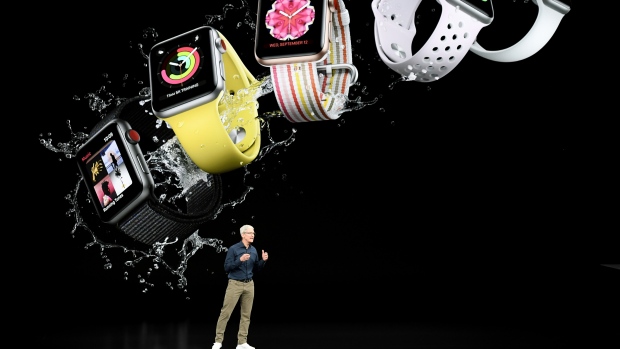Sep 20, 2018
Apple Watch could pave the way for more medical gadgets: FDA
, Bloomberg News

The nation’s top medical-device regulator wants to make it easier for other companies to follow Apple Inc.’s (AAPL.O) lead in integrating products like the Apple Watch’s heart monitor into new consumer gadgets.
“We want to make the market for consumer medical products accessible to nontraditional manufacturers, or traditional technology manufacturers that haven’t before entered the medical space,” U.S. Food and Drug Administration Commissioner Scott Gottlieb said in an interview at Bloomberg headquarters in New York on Thursday. “The door is open to any manufacturer.”
The new smartwatch Apple unveiled last week contains hardware and software to monitor pulse rates and detect unusual heart rhythms known as atrial fibrillation. The FDA approved the device under a lighter-touch regulatory approach that didn’t require the agency to “rip apart the watch,” Gottlieb said. Instead, the regulator focused on whether the software provided valid information to consumers.
The FDA is talking with other companies about putting new consumer medical products on the market through the same approach, Gottlieb said.
Some doctors have warned that ubiquitous heart monitoring could raise alarms in patients with no visible symptoms. Medical guidelines recommend against screening low-risk adults with electrocardiography, the type of test integrated into the Apple Watch.
Gottlieb said he wasn’t troubled by those concerns and that it was up to medical providers to figure out how to respond.
“Consumers want access to information,” Gottlieb said. “I think it’s going to be incumbent upon the profession to make informed judgments about how they act on that information and how they counsel consumers.”







